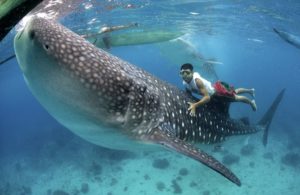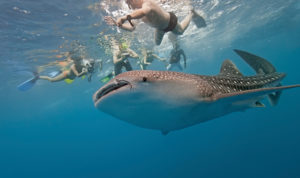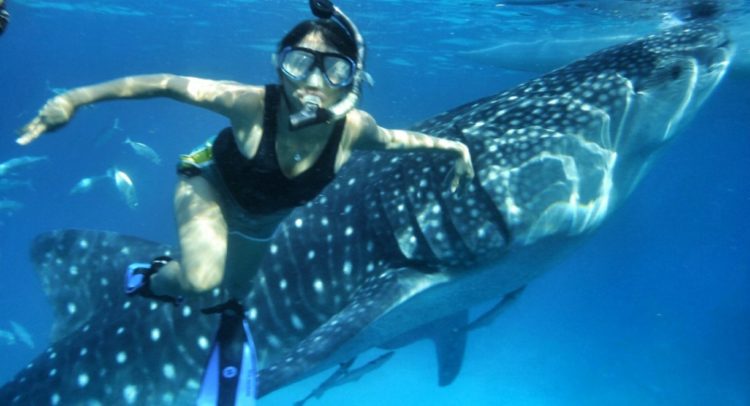Whale shark tourism in Tan-awan, Oslob, the Philippines, has led to the degradation of the local coral reef ecosystem, is the recent outcome of the research revealed by the scientists in Hong Kong, the Philippines and Guam revealed.

Oslob, a small municipality on the south coast of Cebu, the Philippines, is home to the Whale shark tourism. Since 2011, this has become a domestic as well as international hotspot for them who love to watch the species, want to swim with them and desire to pose next to the World’s biggest mamal.

Nowadays Shark viewing is a growing sector of the tourism business and in the year 2015 the village of Tan-awan in Oslob, has set the record of attracting over 300,000 visitors to the spot. Often whale shark tourism can be categorized as ecotourism as well.
The locale shallow reef of the Phillipines have been credited with the existence of these Whale sharks throughout the year, the fact which has energized this mass tourism phenomenon to flourish over here. The species have also been taken good care of by the local tourism associations. They feed the whale sharks with up to 50 tons of shrimps annually.
Scientists from the University of Hong Kong (HKU), the University of Guam, and the Large Marine Vertebrates Research Institute Philippines (LAMAVE) have been doing an extensive study on the possibility of the Whale shark tourism in Oslob. Which shows that this has had an adverse effect on the local reef ecosystem off the coast of Tan-awan.
They have found that Tan-awan had higher microalgae and lower coral density. Further a distinct coral community is overpowered by weedy corals and stress-tolerant corals, in comparison to a reference site further south of the coast.
As said by the co-author Professor of the study, Martin Wong from HKU, “It is important for all local tourism association to understand that the environmental and societal well-being are co-related. I wish that everyone should come along and contribute to the management and conservation the local reef ecosystem, here in Tan-awan,”
The researchers are worried about the fact that this degradation of the ecosystem in Tan-awan which in turn affects the local communities, needs an serious attention. On the other hand the Whale shark tourism as an important tourism sector also requires to be promoted. So the research team urges the local authorities to intervene into the matter and confront the issue and the risks associated with the rapid tourism development simultaneously, with proper management strategies.
Having faith on the local authorities, Dr. Alessandro Ponzo of LAMAVE is quite positive that they will take care of the the long term and broader ecological impact of mass tourism activities in Oslob as well as in many other areas of the country. He said in the context, “formulating the maintenance of marine resources, proceeding towards sustainable tourism and assuring local food security at the same time, through the conservation and restoration of healthy marine ecosystems is the need of the moment.”

